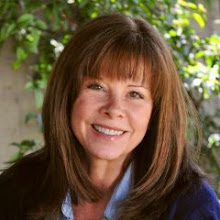
A line of a hundred and five students filed by, pausing to make quick knee dips. For an instant I had an impulse to bow in return, but of course they weren't genuflecting to me. They were honoring the man of the house as they'd been trained to do.
I'd been invited to teach two hour-long Shakespeare workshops at a local Catholic School. A last-minute venue change had to be made as the result of a water main breakage flooding their auditorium. Would I mind using the church?
Mind? With those acoustics? It's the next best place to a theatre. So, in they came, the first group consisting of third-, fourth- and fifth graders — an age group I was familiar with after six years of Shakespeare Club.
I'd designed an interactive curriculum of Calm, Curious and Courageous, three items found in an actor's toolbox. We started with meditation, followed with writing and finished up with sharing their words and reading a scene aloud. 
For this first group I covered the Bard's life, the lives of Elizabethans, the plague and some of "A Midsummer Night's Dream." Boys in the audience groaned at the idea of Elizabethan-era boys wearing dresses, and girls found it unfair girls back then couldn't be actors.
If I was an Elizabethan girl, I would like it that I didn't have to go to school, one child wrote. I would like to be at home to cook and sew.
I gave them the prompt OBEY, as Hermia was being asked to do. "When did you have to obey? What happened when you obeyed?"
"I wrote about Hermia," a small girl said by my side up at the altar. If I was Hermia I wouldn't obey. I would run away with Lysander.
"Wait a second, have you read this play?"
No.
"That's exactly what Hermia does. You should play Hermia."
The older kids — sixth-, seventh- and eighth-graders — filed in for the second session. I was now into fresh territory. The atmosphere rang, Cool, so cool, way too cool for this stuff.
"I want to tell you about this kid...he's a teenager with a wrecked hand and a lousy foot, and if that weren't bad enough he's got a crummy hump on his back. It's not his fault, he was just born this way. Imagine this teenager, Richard, stumbling around the cafeteria looking for a place to eat while other kids call him a 'bottled spider' and 'bunch-backed toad.' Anyone here ever feel like they didn't fit in, or weren't cool enough, or that other people were calling them names?"
A couple of hands went up.
"To all of you with your hands up I say, You may well be a writer, an actor, a director, a painter or musician — because artists have to understand what hurts."
More hands flew up.
With this group I covered themes of Power, Revenge and Love. They wrote but were less than eager to share. The first time I asked only one boy stepped forward.
I would like to have power to make my own decisions about things. I would like to make my own choices but I would probably make terrible decisions, David read aloud.
"I think we can all identify with what David has written. Who wouldn't like to decide whether or not to attend school, or to sleep in, or what to eat? But David, I don't agree with the last part of what you wrote. Look out here. See all these kids, your classmates?"
Nod.
"You're the only one, of all these hundred kids, brave enough to come up here and share. You've already made a brilliant decision."
And so it went with Hamlet's need for revenge, Viola and Sebastian's search for love and Macbeth's lust for power. Jaws hung open as tales of murder and bloody gloves shared a space usually reserved for God's word.
More kids wanted to share their writing. More hands flew up to read aloud a scene with Hamlet and Gertrude or Viola and Olivia.
A young fellow bravely read to us of love for those in his life who had passed on.
It doesn't seem fair a thirteen-year-old should have to write of death. There's something wrong with a child losing loved ones and yet, if anyone would have understood, it would be William Shakespeare.
What I could offer these kids was power. The power to be understood, to be heard and to be acknowledged. Anywhere, anytime...who doesn't want that?






